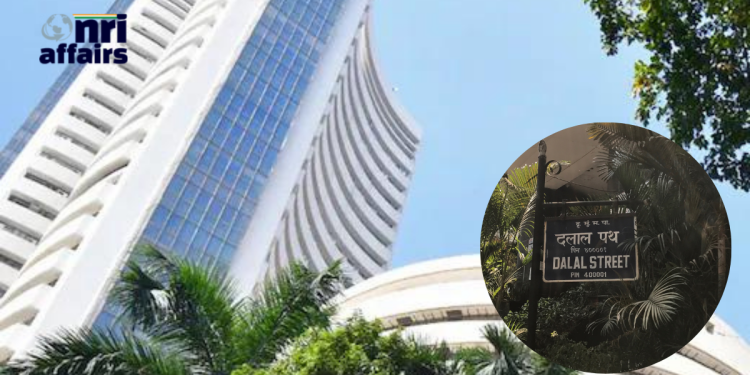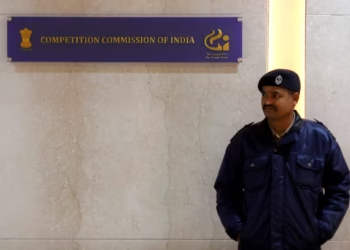Key Stock Market Crash Highlights: BSE Sensex concludes with a staggering drop of 4,390 points; Nifty50 plunges by 5.93% amidst a challenging contest between the Modi-led NDA and the INDIA bloc.
In a startling turn of events, the Indian stock market experienced a severe downturn today, marking its steepest plunge in four years. Dalal Street, the epicenter of India’s financial hub, bore witness to a tumultuous day of trading as investors grappled with the fallout of the NDA’s failure to secure the much-anticipated ‘400 Paar’ milestone in the political arena.
Dalal Street felt the reverberations as the National Democratic Alliance (NDA), under the leadership of the Bharatiya Janata Party (BJP), had set lofty objectives for the recent elections, aspiring to clinch a decisive victory and surpass the formidable ‘400 paar’ milestone in the Lok Sabha. Nevertheless, the results failed to meet expectations, triggering seismic waves across the nation’s financial terrain.
As the election results trickled in, indicating a less decisive victory for the ruling coalition than initially projected, investor sentiment quickly soured. The uncertainty surrounding the political landscape and its potential ramifications on economic policies and reforms sent waves of panic through the stock market.
The benchmark indices, including the BSE Sensex and the NSE Nifty, witnessed a freefall right from the opening bell, with widespread selling pressure engulfing the trading floor. Market analysts and experts scrambled to make sense of the unfolding scenario, attributing the steep decline to a combination of factors, including political uncertainty, global market trends, and profit booking by nervous investors.
On Monday, both the BSE Sensex and Nifty50 soared to all-time highs, closing at record levels with a remarkable surge of over 3%. The optimistic momentum was fueled by exit poll predictions favoring a substantial victory for Modi, prompting investors to drive the markets to unprecedented heights, buoyed by prospects of sustained economic expansion. Leading the pack, Modi’s Bharatiya Janata Party-led NDA alliance secured an early lead, dominating over 290 seats out of the total 543 in the lower house of parliament.
Foreign institutional investors (FIIs), who had been pivotal in driving the market rally in recent months, swiftly turned into net sellers, offloading their positions amidst the prevailing uncertainty. Domestic institutional investors (DIIs) too joined the selling spree, adding to the downward pressure on stock prices.
The volatility index, a measure of market uncertainty, soared to dizzying heights, reflecting the heightened nervousness among investors. Panic selling and fear-driven decision-making dominated the trading floor, with many retail investors caught off guard by the ferocity of the market downturn.
To restore calm and instill confidence, regulatory authorities, and policymakers issued statements reassuring investors of the market’s resilience and underlying fundamentals. The Reserve Bank of India (RBI) pledged to provide liquidity support to ensure the smooth functioning of financial markets, while the Securities and Exchange Board of India (SEBI) vowed to closely monitor market activities and crack down on any instances of market manipulation or misconduct.
Despite these efforts, the mood on Dalal Street remained somber, with investors bracing themselves for further volatility in the days ahead. The immediate focus shifted to the political arena, as analysts speculated about the implications of the election outcome on economic policies, reforms, and investor sentiment.
Market participants are likely to tread cautiously, closely monitoring developments on both the political and economic fronts. The outcome of coalition negotiations, policy announcements, and global macroeconomic trends will continue to dictate the market trajectory in the coming weeks.
While today’s crash may have caught many investors off guard, seasoned market veterans remain optimistic about the long-term prospects of the Indian economy and the resilience of its stock market. As history has shown, periods of volatility often present buying opportunities for astute investors willing to weather the storm and stay invested for the long haul.
The worst crash on Dalal Street in four years is a stark reminder of the inherent volatility and unpredictability of financial markets. While today’s events have undoubtedly rattled investor confidence, they also underscore the importance of a diversified portfolio, a disciplined investing approach, and a long-term perspective in navigating the ups and downs of the stock market.











